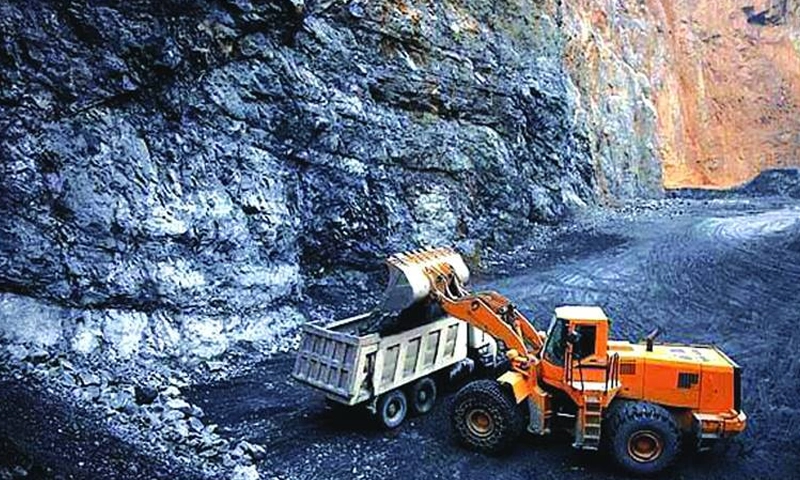- Web Desk
- Yesterday
KP’s proposed minerals legislation stirs tension in PTI
-

- Faqeer Hussain Web Desk
- Apr 09, 2025

PESHAWAR: Discussion around Khyber Pakhtunkhwa (KP)’s mineral resources is echoing in the power corridors from Islamabad to Peshawar, as the provincial government has introduced the Khyber Pakhtunkhwa Mines and Minerals Act 2025 aimed at reforming the mining sector.
However, members of the ruling Pakistan Tehreek-e-Insaf (PTI) in the provincial assembly have expressed concerns over the proposed legislation, leading to delays in its passage. This has prompted Chief Minister Ali Amin Gandapur to personally clarify the government’s position.
The KP government has presented the Khyber Pakhtunkhwa Mines and Minerals Act 2025 — a comprehensive legislative proposal for exploration, development, and investment in the mineral sector — before the provincial assembly after taking approval from the cabinet.
The 139-page draft, tabled by the provincial law minister, proposes the formation of a Mineral Investment Facilitation Authority headed by the provincial minister for minerals.
The authority will have the ministers for finance, environment, industries, and law, as well as secretaries of relevant departments, the director-general of KP Revenue Authority, the director-general of the Federal Mineral Wing, and a representative of mine owners. The director-general of the KP Minerals Department will serve as the authority’s secretary.
Also read: Pakistan Minerals Investment Forum set to begin tomorrow
Moreover, a 10-member Mineral Licencing Authority will be formed headed by the director-general of minerals. Its members will include the additional director-general, the chief inspector of mines and representatives from forestry and other departments.
According to the proposed bill, to curb illegal mining, a “Mines and Minerals Force” will be established under the director-general of minerals. The government will set up force stations as needed. The force will be tasked with halting illegal mining, and registering cases, and all personnel will be required to wear uniforms. The act also classifies general and precious minerals into ten distinct groups.
On April 4, when Speaker Babar Saleem Swati asked Law Minister Aftab Alam to present the bill under the additional agenda, lawmakers —both from the ruling party and opposition, including Shakeel Khan, Fazal Elahi, Adnan Wazir, and Sobia Shahid — raised objections.
They argued that the bill would shift control of KP’s mineral resources to the federal government, depriving the province of its rights.
Despite their protests, the speaker allowed the bill to be presented in the assembly. However, instead of passing it in the next session, the assembly ordered the secretary for minerals to brief lawmakers on April 14, leading to a surprising pause in proceedings.
Chief Minister Gandapur’s Clarification
In a video message, KP Chief Minister Ali Amin Gandapur said that there was no plan to transfer control of the province’s mineral resources to anyone else.
“Misunderstandings are being spread regarding the Mines and Minerals Act,” he said, adding that the reforms are essential and not intended to undermine provincial authority.
He stressed that no one can take away or hand over the province’s powers and cited the successful auction of four gold blocks following a crackdown on illegal mining, which generated Rs5 billion in revenue for the provincial government.
Gandapur reiterated that the new act would help develop the mining sector, and the government would not compromise on the province’s interests or allow interference in its authority.
According to KP Minerals Department senior officials, the new act aims to create a more conducive environment for local and international investors, promote environmentally responsible scientific mining, and establish an independent Mines and Minerals Appellate Tribunal headed by a retired high court judge and eliminate bureaucratic interference in the sector.




